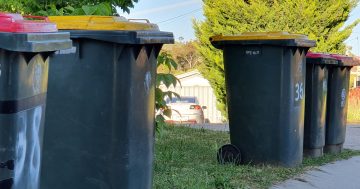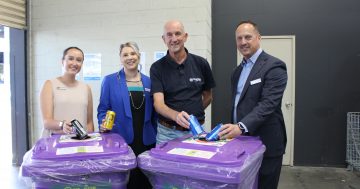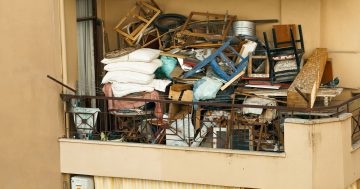
Saw this gross image at the Belconnen Westfield shopping centre a while ago.
People just kept scoffing down yoghurt and throwing their recyclable containers in the full garbage, because walking to the recycling bin was too much effort.
The bin in the actual store was full, and also not a recycling bin.
Yogurtland prides itself on being environmentally-friendly. This is what their web site says: http://yogurtlandaustralia.com.au/bigger-issues/environmental/
Not only is it bad for the environment, it’s also just plain disgusting. There was spilt yoghurt all over the floor.
Do you think Yogurtland is an environmentally friendly company?





















